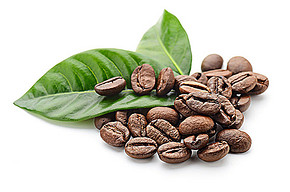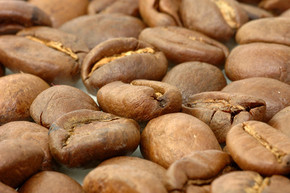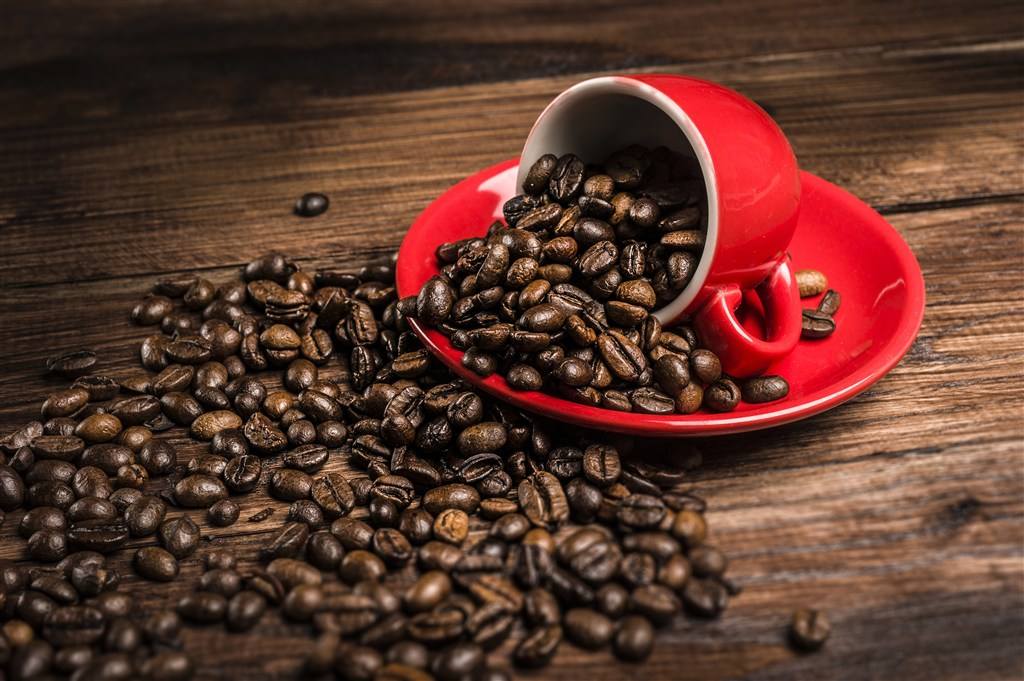Introduction to the characteristics of coffee planting flavor in El Salvador
Follow the caf é (Wechat official account vdailycom) and found that Beautiful Cafe opened a small shop of its own.
El Salvador: steady taste and lively flavor go hand in hand
Coffee farming in El Salvador began in the late 19th century, when a group of foreigners took over the land from the locals with a history of barbaric violence.
During the civil war from 1980 to 1992, exploited peasants joined guerrilla warfare in order to extricate themselves from difficulties, and many people lost their lives in the war. Some people speculate that it is this riot that keeps many old varieties alive and not disappear. The war lasted 12 years, and coffee farms had no chance to modernize their cultivation, so they had to continue to grow old varieties.

The quality of Salvadoran coffee that I have been reluctant to part with is that although it has a rich taste, it does not mask the complex aroma. I like the calm and lively style of Salvadoran coffee best.
As in most coffee-growing areas, most farms in El Salvador are located at lower elevations and produce commodity-grade coffee beans. However, there is also some pretty good infrastructure, built at high elevations, just right from the Pacific deepwater port of Akahutra, and an excellent microclimate. Farmers are willing to take the trouble to preserve the delicious but low-yield bourbon and parkas species.
These factors come together to create my favorite coffee.
Flavor characteristics
The reason I like Salvadoran coffee is their complex aroma and sweetness, which complement the silky and sticky taste.
Fortunately, Blue bottle was able to get some high-quality Salvadoran coffee beans from a farm run by Aida Batlle in the Los Nalanjos region.
This bean has the tonality of yellow sugar, sometimes with complex flavors of plums, butter and toffee. It is strong and fragrant in the cup, with a silky finish.
If we go to the right time, we can also get beans that have been treated in four ways at the same time on the farm: washing, tanning, honey treatment and a variant wet ploughing method (called "Sumenvado" by Aida).
Variety
The main varieties of coffee in El Salvador are bourbon, iron pickup and Pacas. Pacas is a variant of bourbon with bright flavor, floral characteristics and mellow taste.
Coffee farmer in El Salvador: Aida Batlle
Moved back to El Salvador from the United States to be a coffee farmer.
If you can go back to more than four generations of family coffee cultivation, you can basically foresee that you will also become a coffee farmer. But for Aida, the situation is a little special. At the age of six, she migrated to the United States with her parents and grew up there to avoid the civil war.
In the summer of 2002, Aida Batlle, who had settled in Nashville at the time, came to El Salvador to visit his parents, who had returned to look after the coffee farm. In those years, the price of coffee beans fell to a low ebb, and my father seemed to have been hit hard and depressed.
Salvadoran coffee farmers
She suddenly felt that she should uproot her life from the United States and move to El Salvador to become a farmer. "my parents thought I was crazy when they heard about the decision."
The award-winning price of COE for sending comments is twice as long.
Aida wanted to know as much as she could about the coffee trade, so she began to attend lectures and asked the Salvadoran Coffee Council for help.
She heard about COE and decided to send coffee beans from two of her family's farms to participate in the first COE El Salvador coffee bean contest in 2003. To her great surprise, one of the beans sent won the first place.
Before winning the COE, no one in the family had ever tested or even tasted their own coffee beans. Aida became the first female coffee farmer to win the COE competition, while her raw coffee beans sold for $14.06 a pound, also a record. Aida soon became one of the most famous coffee farmers in the world.
Adhere to low-yield bourbon seeds and organic cultivation with good taste
Aida is now in charge of the family's four farms, three of which are named after African place names.
Tanzania: 1275-1380 m, Mauritania: 1400-1600 m, Los Alpas: 1550-1875 m, Kilimanjaro: 1580-1720 m.
Aida is also a consultant who oversees the overall quality of coffee beans from picking and screening to all batches of coffee beans on two other farms she has selected.
When he took over the farm, Aida insisted on organic cultivation immediately and was certified in 2005. Compared with traditional farming methods, organic farming will greatly reduce the yield, and the use of older coffee bean varieties is not conducive to disease resistance. However, Aida still loves the traditional bourbon species, which her great-great-grandfather brought to El Salvador.
The farms in Mauritania are all bourbon, while Kilimanjaro is mostly Kenyan and bourbon. Los Alpas grows iron pickup and bourbon. As a new member of the family farm, Tanzania grows almost all bourbon.
Nowadays in El Salvador, it is difficult to keep growing old varieties because the cost is getting higher and higher, and if you do not trade directly with coffee roasters in the market, you will have to rely on exporters and processors to sell your coffee beans. As a result, Aida launched the "Aida Batlle Select" project to connect other local coffee farmers and bean bakers.
Coffee practitioners who have visited the Kilimanjaro farm evaluated that, based on the cup test data and the appearance of the plants, the Kenyan coffee tree planted here may be the most valuable African variety, collectively known as "SL-28", although Aida has never tested it before.
Kilimanjaro is one of the few farms in the region to grow Kenyan coffee trees, some of which were uprooted and stolen during Aida's first COE.
Important Notice :
前街咖啡 FrontStreet Coffee has moved to new addredd:
FrontStreet Coffee Address: 315,Donghua East Road,GuangZhou
Tel:020 38364473
- Prev

Introduction to the aroma and taste of Salvadoran coffee
Following Cafe Review (Wechat official account vdailycom) found that Salvadoran Coffee has opened its own shop. Salvadoran Coffee refers to the coffee from El Salvador, a small country in South America, where it is light, aromatic, pure and slightly sour, with a well-balanced flavor and a specialty of Central America. With sour, bitter, sweet and other taste characteristics, the best baking degree is moderate, deep. Sal.
- Next

El Salvador Spa Coffee
Pay close attention to the coffee review (Weixin Official Accounts vdailycom ) and find a beautiful cafe to open its own shop El Salvador Santa Teresa Pakamark El Salvador Hot Spring Coffee. At first glance, the name is quite special, and its real special feature lies in its growing place and unique production process. El Salvador Hot Spring Coffee is selected from El Salvador.
Related
- Detailed explanation of Jadeite planting Land in Panamanian Jadeite Manor introduction to the grading system of Jadeite competitive bidding, Red bid, Green bid and Rose Summer
- Story of Coffee planting in Brenka region of Costa Rica Stonehenge Manor anaerobic heavy honey treatment of flavor mouth
- What's on the barrel of Blue Mountain Coffee beans?
- Can American coffee also pull flowers? How to use hot American style to pull out a good-looking pattern?
- Can you make a cold extract with coffee beans? What is the right proportion for cold-extracted coffee formula?
- Indonesian PWN Gold Mandrine Coffee Origin Features Flavor How to Chong? Mandolin coffee is American.
- A brief introduction to the flavor characteristics of Brazilian yellow bourbon coffee beans
- What is the effect of different water quality on the flavor of cold-extracted coffee? What kind of water is best for brewing coffee?
- Why do you think of Rose Summer whenever you mention Panamanian coffee?
- Introduction to the characteristics of authentic blue mountain coffee bean producing areas? What is the CIB Coffee Authority in Jamaica?

